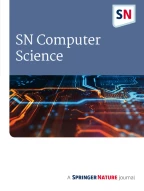Abstract
The problem of internet connectivity in the Philippines has added a heavy burden to the online learning environment and the use of learning management systems by the nursing educational sector. Thus, the researchers developed the Filipinized Learning Management System (FLMS) that addresses the problem of unstable internet connection, is freely accessible, and is responsive to the teaching and learning needs of Filipino nursing faculty and students. Faculty and students were surveyed about their initial experiences and thoughts with the system utilizing a mixed-methods approach, which involved a series of focus group discussions and the use of the Technology-Acceptance Model (TAM) questionnaire. The FLMS’s design features include target user appropriateness, lower and lesser system operating and maintenance requirements, offline features, and multi-modal means of content presentation and communication. Preliminary findings indicate that the Filipinized Learning Management System (FLMS) demonstrated the potential to address connectivity issues, featuring a user-friendly interface and offline capabilities. It facilitated engagement and community building through collaborative tools and discussion boards. However, users also faced notable technical challenges, leading to recommendations for system enhancements. The results of the study prove that developing a learning management system entails a process of assessing and understanding its intended users to maximize its potential effectively. The pilot implementation of the FLMS uncovered vital insights into its ability to mitigate connectivity obstacles and enhance online education in the Philippines. It is challenging yet possible. The study hopes to contribute to the discourse of creating technological advancements in the field of education.
Similar content being viewed by others
Explore related subjects
Discover the latest articles, news and stories from top researchers in related subjects.Data Availability
The authors confirm that the data supporting this study is publicly available within the article. Raw data supporting the findings are available upon reasonable request.
References
Allen M, Sites R. Leaving ADDIE for SAM: an agile model for developing the best learning experiences. New York: ASTD; 2012.
Azer M, El-Sherbini A. Cultural challenges in developing e-learning content. Int J Emerg Technol Learn. 2011;6(1):11. https://doi.org/10.3991/ijet.v6i1.1467.
Baticulon R, Sy J, Alberto N, Baron M, Mabulay R, Rizada L, Tiu C, Clarion C, Reyes J. Barriers to online learning in the time of COVID-19: a national survey of medical students in the Philippines. Med Sci Educ. 2021;31:615–26. https://doi.org/10.1007/s40670-021-01231-z.
Bocetta, S. Advantages of open source software compared to paid equivalents. Information Age. 2019. https://www.information-age.com/advantages-of-open-source-software-123485580/. Accessed 13 May 2022.
Clesham, M. 5 Stages of the Agile System Development Life Cycle. BrightWork. 2020. https://www.brightwork.com/blog/5-stages-of-the-agile-system-development-life-cycle. Accessed 13 May 2022.
Davis F. Perceived usefulness, ease of use, and user acceptance of information technology. Manag Inform Syst Res Center. 1989;13(3):319–40. https://doi.org/10.2307/249008.
Herrholtz, K. SAM: a rapid design and development model—eLearning industry. E-learning Industry. 2020. https://elearningindustry.com/sam-successive-approximation-model-for-rapid-instructional-design. Accessed Accessed 13 May 2022.
Hudelson P. Culture and quality: anthropological perspective. Int J Qual Health Care. 2004;16(5):345–6. https://doi.org/10.1093/intqhc/mzh076.
Juhary J. Perceived usefulness and ease of use of the learning management system as a learning tool. Int Educ Stud. 2014;7(8):23–34. https://doi.org/10.5539/ies.v7n8p23.
Kumari R. Open source software: a prominent requirement of information technology. Int J Sci Res Netw Secur Commun. 2018;6:24–9. https://doi.org/10.26438/ijsrnsc/v6i2.2429.
Rizal R, Rusdiana D, Setiawan W, Siahaan P. Development of a problem-based learning management system-supported smartphone (PBLMS3) application using the ADDIE model to improve digital literacy. Int J Learn, Teach Educ Res. 2021;20(11):115–31. https://doi.org/10.26803/ijlter.20.11.7.
Mazhar, W. SAM model: Best instructional design model for short deadlines and staying on budget. Lang Leap Blog. 2018. http://langleap.com/blog/sam-model-best-instructional-design-model-for-short-deadlines-and-staying-on-budget/. Accessed Accessed 13 May 2022.
Rafanan, F. Learning management system for Quirion State University. Quirino State University Research Journal. 2016; 5. https://ejournals.ph/article.php?id=15843
Rajkumar, S. What is pilot testing—a detailed step-by-step guide. Software Testing Material. 2021. https://www.softwaretestingmaterial.com/pilot-testing/. Accessed 13 May 2022.
Salas R, Kim Y. A study on the internet connectivity in the Philippines. Asia Pacific J Bus Rev. 2016. https://doi.org/10.20522/APJBR.2016.1.1.67.
Sirui, W. The instructional design model that best fits—SAM Model. Learning by click. 2018. https://learningbyclick.wordpress.com/2018/08/18/the-instructional-design-model-that-best-fits-sam-model/. Accessed 13 May 2022.
Tsukahara W, Anma F, Nakayama K, Okamoto T. A development of learning management system for the practice of e-learning in higher education. In: Tatnall A, Okamoto T, Visscher A, editors. Knowledge management for educational innovation. IFIP International Federation for Information Processing. Boston: Springer; 2007. p. 230. https://doi.org/10.1007/978-0-387-69312-5_1.
Funding
This work was funded by the UP System Emerging Interdisciplinary Research Program (OVPAA-EIDR-C09-01).
Author information
Authors and Affiliations
Contributions
HMR and MKE: wrote the entire manuscript while CD, AS and RDJ: prepared the technical information for the FLMS. All authors reviewed the manuscript.
Corresponding author
Ethics declarations
Conflict of Interest
The authors declare there is no conflict of interest.
Informed Consent
The authors affirm that informed consents were obtained from the participants, specifically on the Needs Assessment and Situational Analysis of the paper.
Research Involving Human and/or Animals
Approval of this study was obtained from the Institutional Research and Ethics Committee of the University of the Philippines Open University (REC code: 2022-0011-F-FMDS.
Additional information
Publisher's Note
Springer Nature remains neutral with regard to jurisdictional claims in published maps and institutional affiliations.
Rights and permissions
Springer Nature or its licensor (e.g. a society or other partner) holds exclusive rights to this article under a publishing agreement with the author(s) or other rightsholder(s); author self-archiving of the accepted manuscript version of this article is solely governed by the terms of such publishing agreement and applicable law.
About this article
Cite this article
Ramos, R.C., Garcia, P., Roxas-Ridulme, Q. et al. Development of a Filipinized Learning Management System. SN COMPUT. SCI. 5, 275 (2024). https://doi.org/10.1007/s42979-024-02621-x
Received:
Accepted:
Published:
DOI: https://doi.org/10.1007/s42979-024-02621-x
